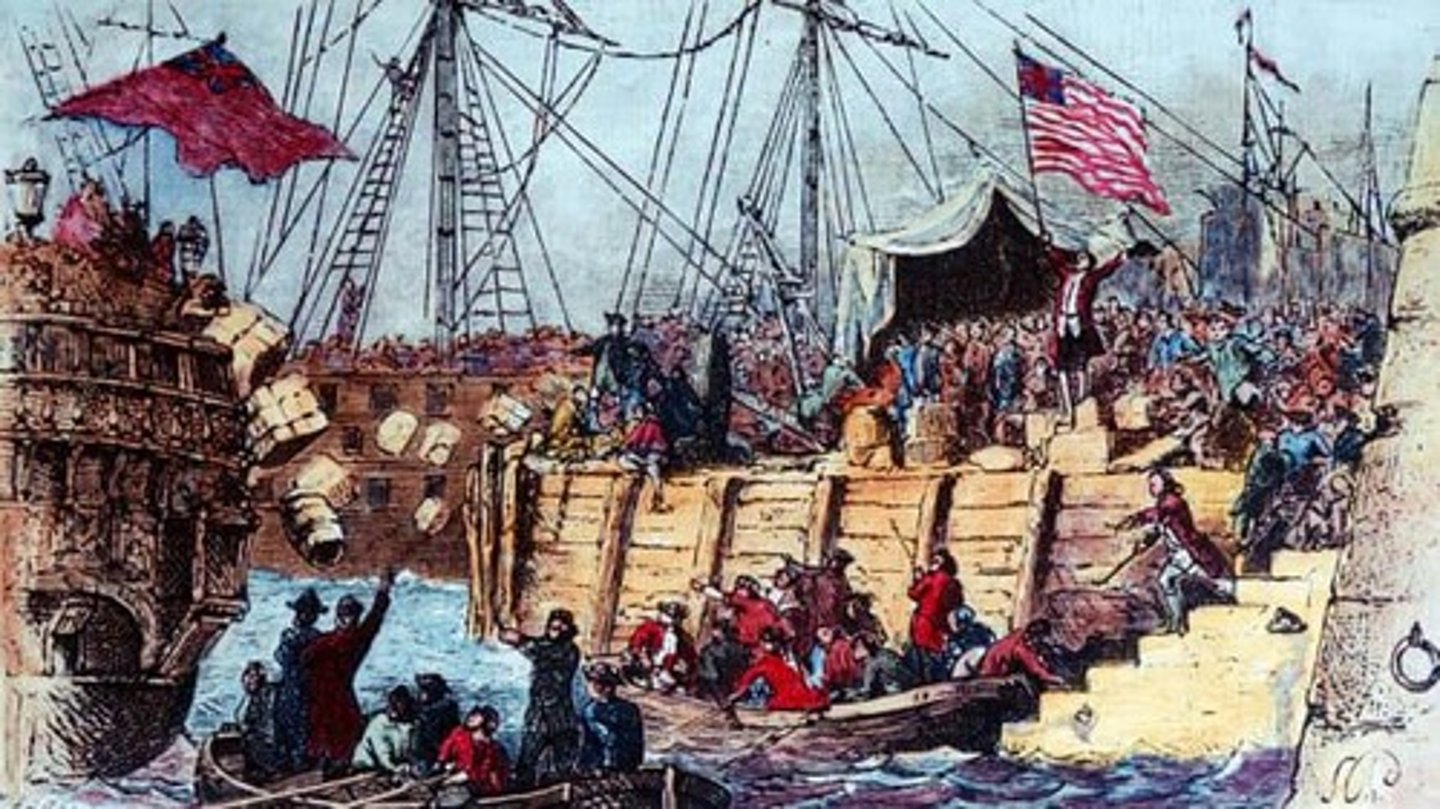Key Events and Ideas of the American Revolution
1/45
There's no tags or description
Looks like no tags are added yet.
Name | Mastery | Learn | Test | Matching | Spaced |
|---|
No study sessions yet.
46 Terms
Magna Carta
1215 document limiting king's power in England.
American Enlightenment
Intellectual movement influencing American revolutionary thought.
Deism
Belief in a rational creator without religious dogma.
John Locke
Philosopher advocating natural rights and government by consent.
Natural Rights
Life, liberty, and property as fundamental human rights.
Social Contract
Agreement among individuals to form a society.
Liberalism
Philosophy emphasizing individual rights and government protection.
Republicanism
Political ideology prioritizing common good over individual interests.
The Great Awakening
Religious revival emphasizing personal faith and emotional connection.
George Whitefield
Evangelist known for impactful sermons in America.
Old Lights
Traditionalists resisting new revivalist movements.
New Lights
Revivalists advocating emotional religious experiences.
Spanish Missions
Religious settlements established by Spain in the New World.
Seven Years' War
Conflict between Britain and France over North American territories.
Treaty of Paris (1763)
Agreement ending the Seven Years' War; territorial changes.
Stamp Act
1765 tax on printed materials in American colonies.
Pontiac's Rebellion
Native American uprising against British post-war policies.
Proclamation of 1763
Forbade colonial settlement west of the Appalachian Mountains.
Common Sense
Pamphlet advocating American independence from Britain.
Ascriptivism
Belief in American cultural independence and governance.
Writs of Assistance
Legal documents allowing search for smuggled goods.
Sugar Act
1764 tax on sugar and molasses imported to colonies.
Currency Act
1764 law regulating colonial currency use.
Townshend Acts
1767 taxes on imported goods to the colonies.
Boston Massacre
1770 confrontation leading to civilian deaths and protests.
Tea Party
1773 protest against British tea tax; Boston Harbor event.

Continental Congress
Assembly of colonial representatives coordinating resistance to Britain.
Declaration of Independence
1776 document declaring American colonies' independence.
Articles of Confederation
First governing document of the United States (1781).
Constitutional Convention
1787 meeting to draft the U.S. Constitution.
Virginia Plan
Proposal for a strong national government with representation.
New Jersey Plan
Proposal for equal representation regardless of state size.
The Great Compromise
Agreement creating a bicameral legislature with mixed representation.
Federalists
Supporters of the new Constitution advocating strong central government.
Antifederalists
Opponents of the Constitution fearing centralized power.
The Federalist Papers
Essays promoting ratification of the Constitution.
Ratification
Formal approval of the Constitution by the states.
North Carolina Ratification
Last state to ratify the Constitution in 1789.
Rhode Island Ratification
Final state to ratify the Constitution in 1790.
Civic Virtue
Commitment to the common good in governance.
Emotional Religion
Focus on personal experience in spiritual practices.
Transatlantic Movement
Cultural exchange between Europe and America during Enlightenment.
Civilian Protest
Public demonstration against government policies or actions.
Committee of Correspondence
Network for communication among colonies before Revolution.
Sons of Liberty
Secret society opposing British taxation and policies.
Regulators of South Carolina
Group protesting colonial governance in the 1760s.